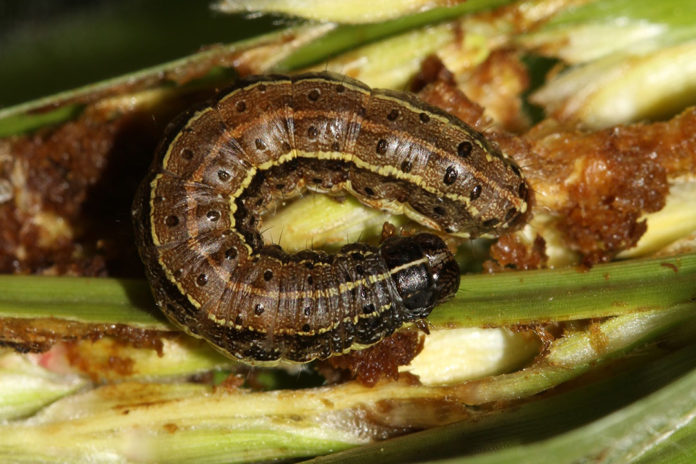The government of Zambia has reported an outbreak of fall armyworms, threatening the country’s agricultural produce.
Reuben Phiri, the Minister of Agriculture, said the fall armyworms have so far been reported in Mkushi district in the central part of the country but added that the outbreak was likely to spread to all parts of the country because of the prevailing climatic conditions.
He told reporters during a press briefing that so far about 331 hectares of land have been affected by the fall armyworms in the district. The minister, however, said the ministry has strengthened surveillance and other control measures to contain the outbreak of the migratory pests, adding that the ministry was actively monitoring the situation.
Losses
Zambia has experienced outbreaks of fall armyworms in seven of the last 10 agricultural seasons. In 2016, it was reported for the first time in the country. Its devastating effect was first seen in 2017 when the invasion caused maize crop damage of 250000 hectares and yield lloss of 15% coutrywide
However, as the fall armyworm continues to spread across the globe, researchers are keenly pursuing technologies that will assist farmers in managing this invasive pest that is threatening food and nutrition security and the livelihoods of hundreds of millions of smallholders.
The Food and Agriculture Organization of the United Nations (FAO) estimates that fall armyworm could cause losses of between 8.3 to 20.6 million tonnes of maize annually, valued at USD 2.5–6.2 billion, enough to feed 40–100 million people in 12 African countries. Finding safe and effective ways of managing this voracious pest is crucial.








